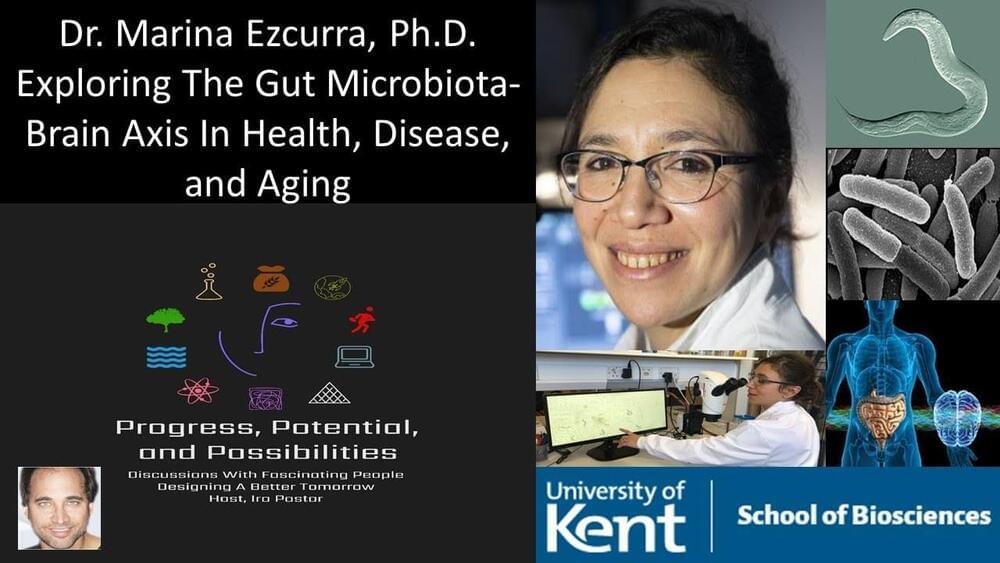Exploring The Gut Microbiota-Brain Axis In Health, Disease, and Aging — Dr. Marina Ezcurra, Ph.D. University of Kent.
Dr. Marina Ezcurra (https://marinaezcurralab.com/) is a Lecturer in the Biology of Aging, and NeuroBiology, at the School of BioSciences, at the University of Kent, UK (https://www.kent.ac.uk/biosciences/people/2081/ezcurra-marina).
Dr. Ezcurra received her PhD from the Karolinska Institute in 2011. Her PhD research was a collaborative project between Karolinska and the Medical Research Council Laboratory of Molecular Biology at Cambridge, where she studied neural circuits and behavior using C. elegans in the lab of Dr. Bill Schafer.
During her PhD, Dr. Ezcurra identified extra-synaptic mechanisms by which nutritional status modulates nociception, involving neuro-peptidergic and dopaminergic signaling. She went on to do a postdoc working on aging with Dr. David Gems at University College London.
During her postdoc, Dr. Ezcurra developed methods to monitor the development of multiple age-related diseases in-vivo in C. elegans, leading to the discovery of a previously unknown process, Intestinal Biomass Conversion. This mechanism enables the C. elegans intestine to be broken down to produce vast amounts of yolk, resulting in poly-morbidity and mortality in aging nematodes. This work illustrates how aging and age-related diseases can be the result of run-on of wild-type gene function, rather than stochastic molecular damage.
Current research in Dr. Ezcurra’s group focuses on how host-microbiome interactions affect host aging, and is funded by The Wellcome Trust and Royal Society.
Dr. Ezcurra is a trustee board member of The British Society of Research on Aging.
